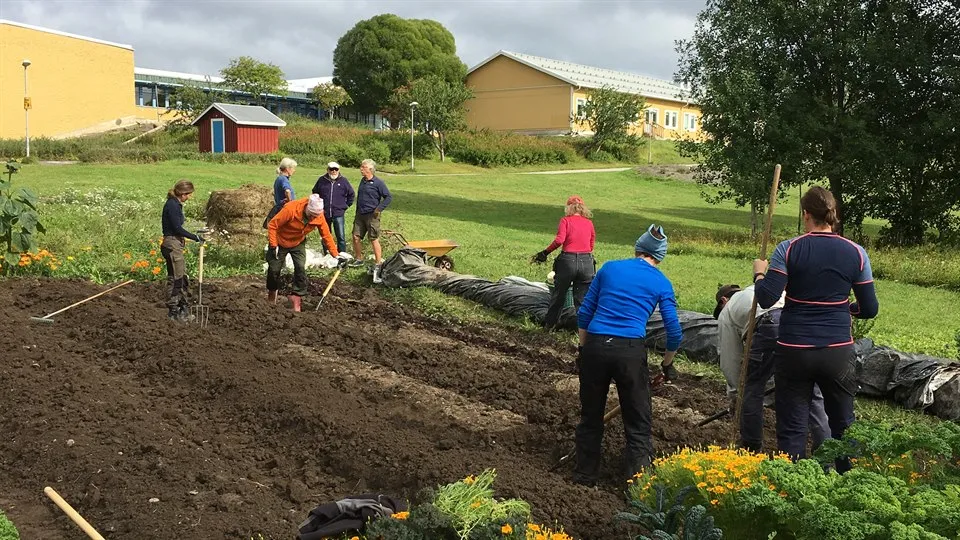Transforming cities and towns to sustainable food systems through urban gardening
This research project focuses on barriers and possibilities for increased community gardening in small and medium-sized towns in Sweden. We particularly explore the potential of using community gardening as a means to create more sustainable towns and cities.
In the project, we will explore (a) how place-specific characteristics affect development (b) how different policy actors work to develop and mobilise urban gardening in a local context and (c) the importance of local grassroots movements in these processes.
Urban gardening is not only about growing your own vegetables but also about social inclusion, learning and belonging to a place. Political decision-makers also see urban gardening as a way to strengthen local food production, create capacity for self-sufficiency and contribute to greener cities. Urban gardening, therefore, has the potential to contribute to the fulfilment of the Agenda 2030s SDG 11 on sustainable cities and communities in several ways and not least as part of the transition to a more sustainable food production system.
Through an interdisciplinary and ethnographic approach, we will conduct fieldwork in four Swedish small and medium-sized cities: Östersund, Härnösand, Södertälje and Lund. We will perform document studies, observations, interviews, GIS mapping and quantitative assessments of soil data to gain an in-depth understanding of the four cases. The project will also be carried out in close collaboration with a reference group with representatives of the four cities' different actors.
The research project is expected to lead to increased knowledge of how urban gardening can contribute to the transition to more sustainable cities and communities.
Facts
Project period
210901—250831
Research centers
Departments
Research groups
Project leader

Project members








